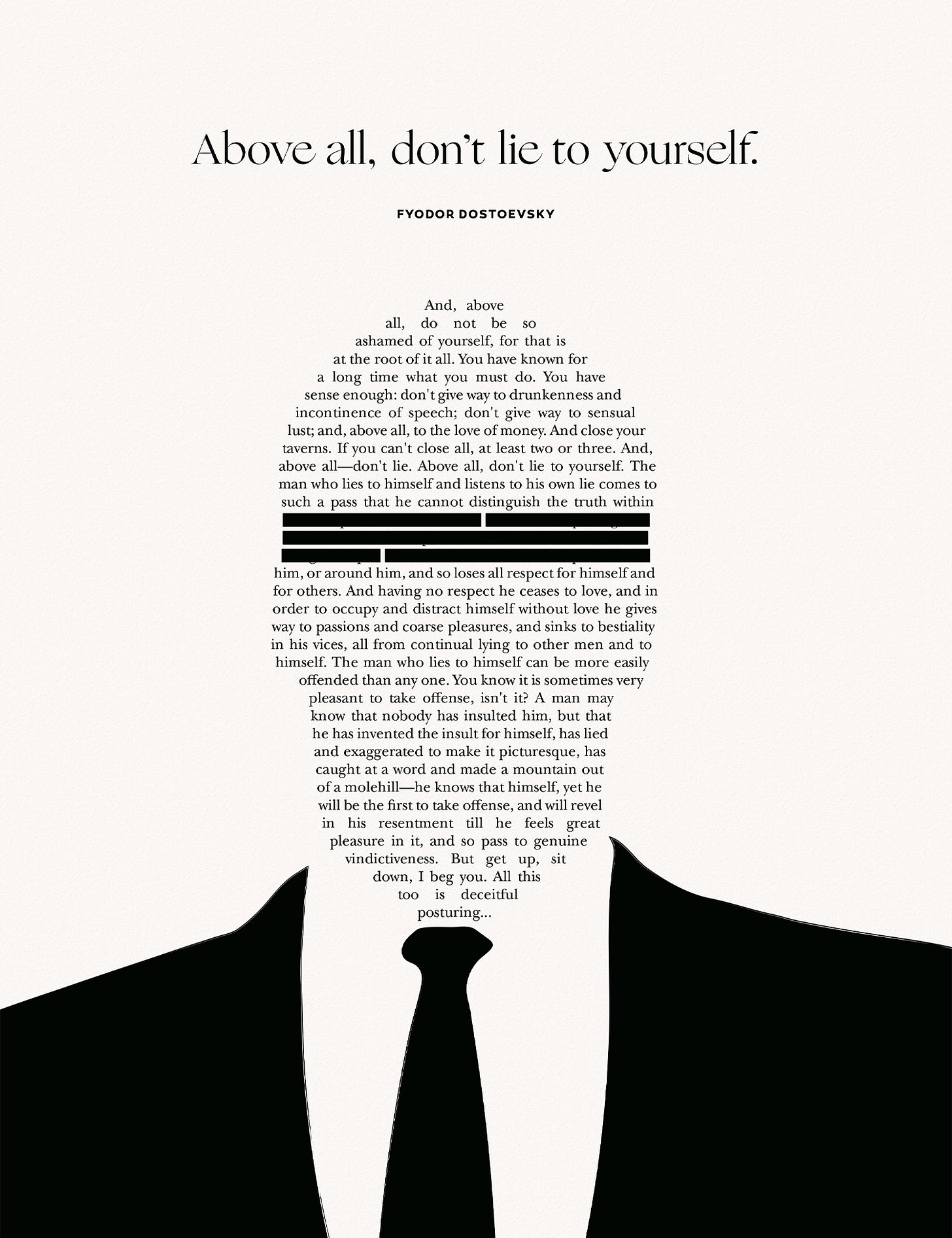
Dostoevsky Boils It Down To One Simple Rule
"Above all, don't lie to yourself." - Fyodor Dostoevsky
From The Brothers Karamazov. This passage is so awesome, we included the entire excerpt in our design to provide context for Dostoevsky's stunning insight into personal responsibility. The entire passage reads:
"And above all, do not be so ashamed of yourself, for that is at the root of it all… You have known for a long time what you must do. You have sense enough: don't give way to drunkenness and incontinence of speech; don't give way to sensual lust; and, above all, to the love of money. And close your taverns. If you can't close all, at least two or three. And, above all—don't lie... Above all, don't lie to yourself. The man who lies to himself and listens to his own lie comes to such a pass that he cannot distinguish the truth within him, or around him, and so loses all respect for himself and for others. And having no respect he ceases to love, and in order to occupy and distract himself without love he gives way to passions and coarse pleasures, and sinks to bestiality in his vices, all from continual lying to other men and to himself. The man who lies to himself can be more easily offended than any one. You know it is sometimes very pleasant to take offense, isn't it? A man may know that nobody has insulted him, but that he has invented the insult for himself, has lied and exaggerated to make it picturesque, has caught at a word and made a mountain out of a molehill—he knows that himself, yet he will be the first to take offense, and will revel in his resentment till he feels great pleasure in it, and so pass to genuine vindictiveness. But get up, sit down, I beg you. All this, too, is deceitful posturing..."
I’ll be honest. When I first read this, I had a Gen-X immune response to a religious figure doling out advice. I may have read it twice or thrice, looking for the irony or hypocrisy, sure that Dostoevsky had meant us to laugh at his pious preening. But I couldn’t identify any, and had to admit there is a kindness, even a humanism in Father Zosima’s advice. Though moral in its subject, the advice is grounded in psychology and good old-fashioned pragmatism. I had to admit that being devoid of grandstanding and moral smugness, it undeniably passed the fire-and-brimstone-sniff test.
So assuming the advice is sound - that shame lies at the heart of immorality - then nothing could be more counterproductive than trying to shame others into behaving morally.
Who’s going to tell Twitter? Not it.
About the Art
“The form of a face emerges from the wise words of the author. However, the text is partially redacted, an act of self-inflicted act of censorship that in the context of the face creates a blindfold.”
Art by Evan Robertson. All rights reserved.


